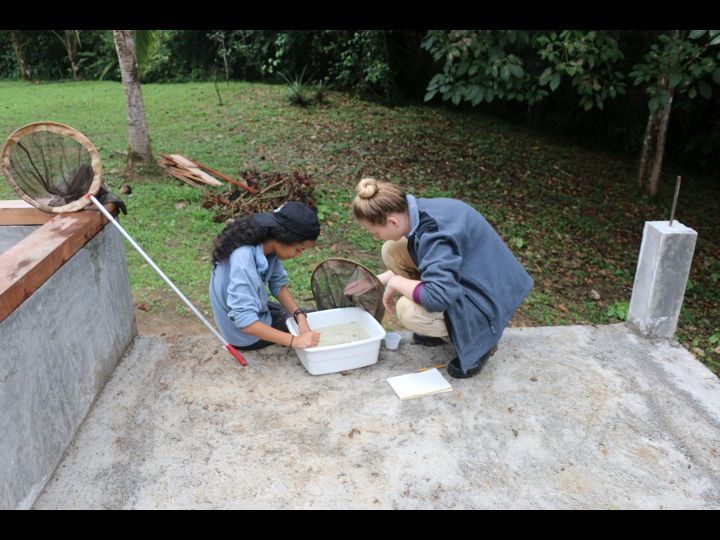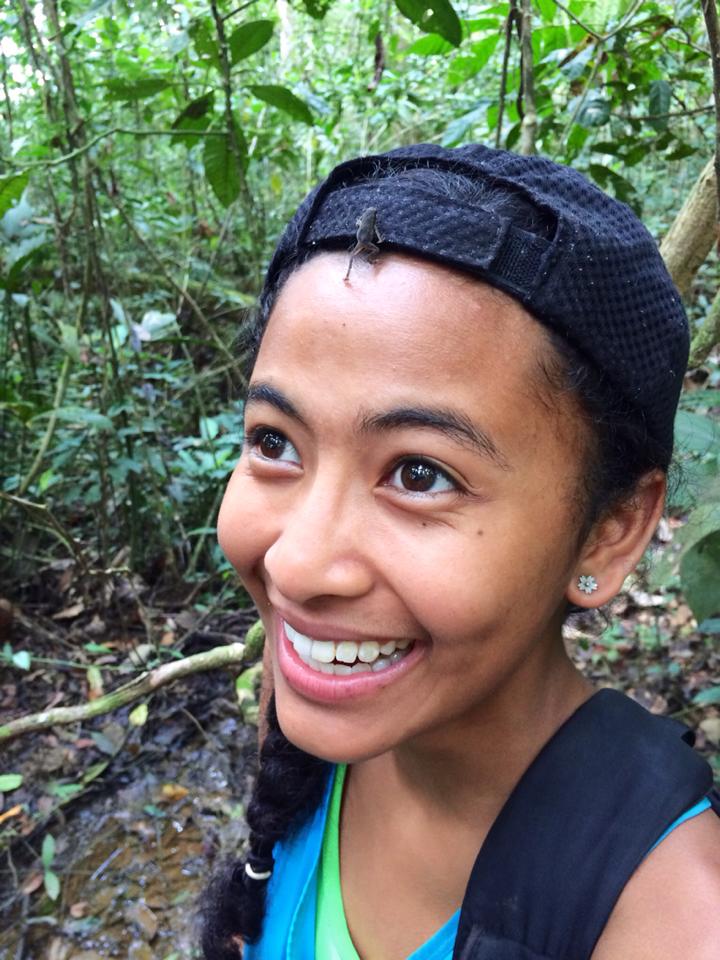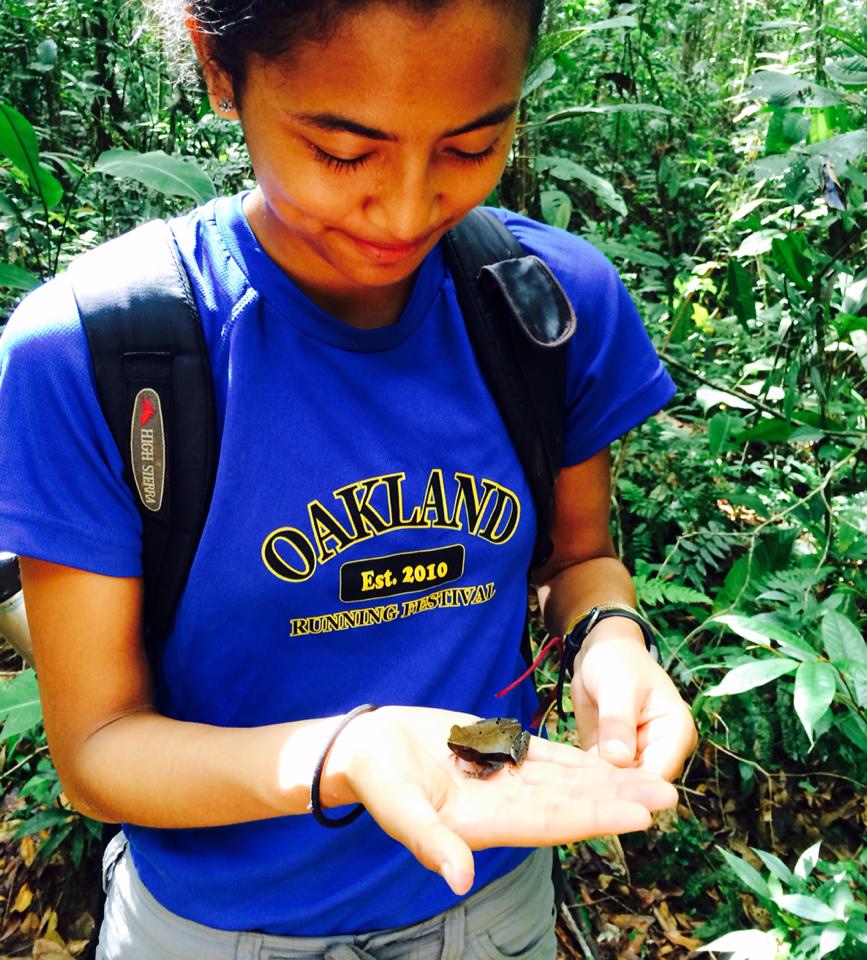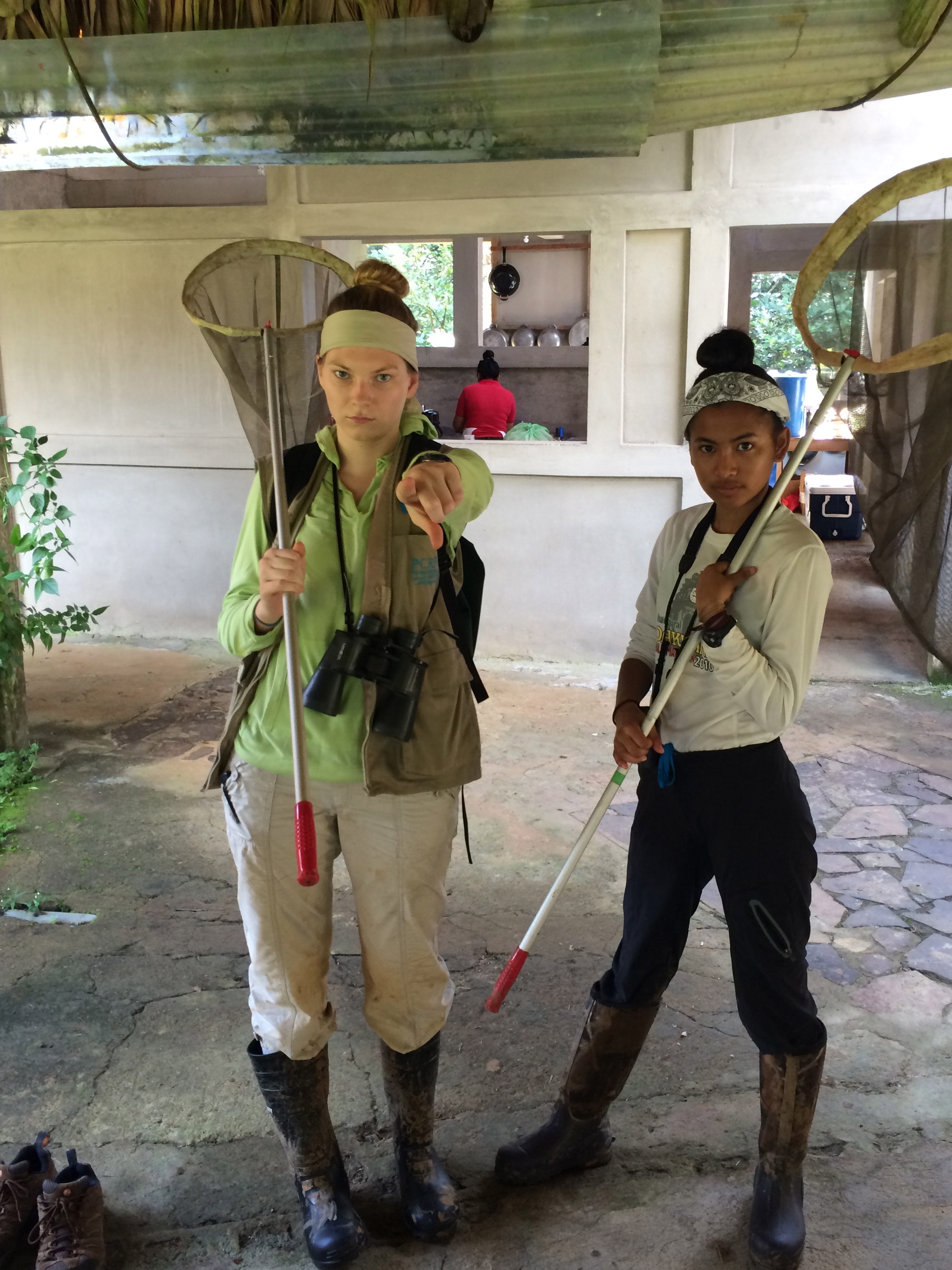
According to the World Health Organization, 4% of global diseases are caused by contaminated water. At Refugio Bartola, Nicaragua, humans frequently interact with water sources, both as a washing or drainage system. Therefore, we took special interest in how water quality affects species richness and abundance in the rainforest streams. We compared pools located upstream and downstream from a lodge generator and a kitchen waste pipe. We tested the water quality by examining coli bacteria presence, amount of dissolved oxygen, and creating a visual assessment of impact score (presence of bubbles, foam, oil, and murkiness) for each examined pool. Our hypothesis is that anthropogenic impacts will affect species richness and species abundance in rainforest streams, due to differences in water quality. We predict an overall decrease in species richness and abundance in pools affected by anthropogenic disturbances. Furthermore, we predict the water quality will decrease in sites affected by anthropogenic disturbances.
We found that there was no difference in species richness, species abundance, total number of fish, total number of dragonflies, and coli bacteria presence between pools above and below anthropogenic disturbances. The highest amount of coli bacteria was present in the pool downstream from the kitchen waste pipe where large quantities of food waste were transported. The pH and dissolved oxygen content was the same in all pools we tested. We did find a difference in the amount of water striders and the visual assessment of impact in pools above and below anthropogenic disturbances. A larger water strider abundance and less visual disturbance existed in undisturbed pools. Therefore, as the visual assessment of impact increased, the amount of water striders decreased.
Even though we did not seem to find a significant difference in species richness and abundance between disturbed and undisturbed pools, we did find that water striders were affected by the present anthropogenic disturbances. Since water striders were affected by the presence of a generator and food residue from a kitchen waste pipe, it is not difficult to imagine what would happen to this species or any other aquatic species if they were exposed to more serious forms of pollution, such as an oil spill or toxic waste. In addition, large groups of tourists only come to this ecotourism lodge every couple of months, or in our case, every two years. If the disturbance levels increase, then species richness and abundance will most likely decrease. However, we might not have reached the threshold of disturbance yet to detect a distinct difference between impacted and non-impacted pools. Moreover, our experiment provides a good baseline for future projects that could examine the effects of large-scale anthropogenic disturbances on animal species.




